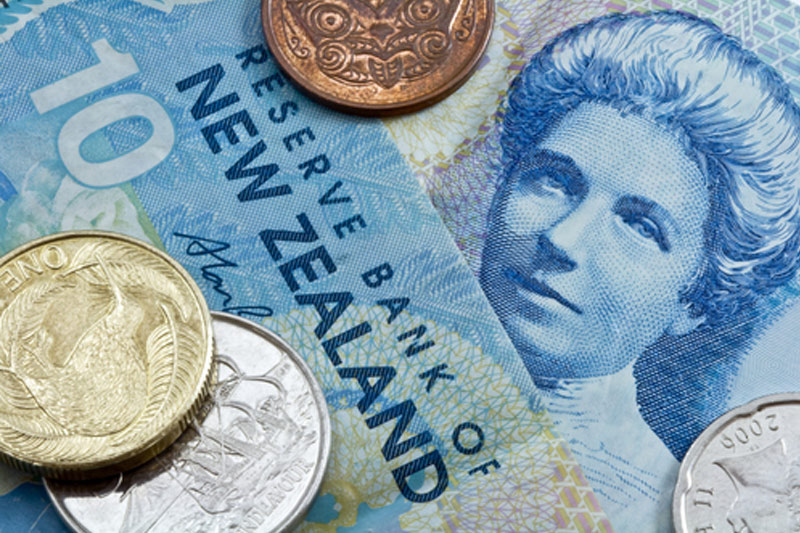Investing.com - The New Zealand dollar gained after the central bank held the official cash rate at 3.5% on Thursday even as it cut 90-day bill forecasts and said the monetary policy view is neutral.
NZD/USD traded at 0.7305, up 0.19%, after the decision. USD/JPY traded at 121.43, down 0.02%, while AUD/USD changed hands at 0.7604, up 0.09%.
The outlook is for "a period of stability," RBNZ Governor Graeme Wheeler said.
"Our central projection is consistent with a period of stability in the OCR. However, future interest-rate adjustments, either up or down, will depend
on the emerging flow of economic data," RBNZ said.
The policy statement is "neutral," Wheeler said at a news conference following its release.
The outlook for 90-day interest rates is flat and expected to remain at 3.7% over the entire forecast horizon which stretches through to March 2017, the
statement said.
That compares with the bank's forecast of a gradual rise to 4.4% over the same period in its last monetary-policy statement three months ago.
The U.S. dollar index, which measures the greenback’s strength against a trade-weighted basket of six major currencies, rose to 99.71 in Asia, up 0.07%.
Up ahead in Japan, is the February Consumer Confidence Survey at 1400 (0500 GMT). In January, Japan's consumer confidence index rose 0.3 point to a seasonally adjusted 39.1, posting the second straight rise and the highest reading since 39.9 in September.
Overnight, the dollar remained broadly supported against a basket of other major currencies on Monday, trading at 11-1/2 year highs as expectations for a near-term U.S. rate hike continued to support the greenback and as trading volumes remained light with no major U.S. data ahead.
The Federal Reserve is expected to begin raising interest rates around the middle of this year and investors were looking ahead to next week’s policy statement to see if it would drop its reference to being patient before raising rates.
The euro came under broad selling pressure after the European Central Bank began purchasing securities on Monday as part of an asset-buying program amounting to €60 billion a month.
Concerns over the situation in Greece also weighed, as the eurogroup of finance ministers continued talks in Brussels to discuss a reform package put forward by Greece as part of its bailout review.
Germany’s finance minister Wolfgang Schaeuble warned Tuesday that Greece must stop wasting time and start developing its reform package.
